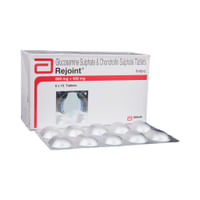Lipifol-D3 20 Tablet

food interaction for Lipifol-D3
alcohol interaction for Lipifol-D3
pregnancy interaction for Lipifol-D3
lactation interaction for Lipifol-D3
food
alcohol
pregnancy
lactation
Lipifol-D3 20 Tablet is to be taken with food.
None
None
CAUTION
It is unsafe to consume alcohol with Lipifol-D3 20 Tablet.
UNSAFE
Lipifol-D3 20 Tablet is highly unsafe to use during pregnancy. Seek your doctor's advice as studies on pregnant women and animals have shown significant harmful effects to the developing baby.
UNSAFE
Lipifol-D3 20 Tablet is probably safe to use during breastfeeding. Limited human data suggests that the drug does not represent any significant risk to the baby.
SAFE IF PRESCRIBED
SALT INFORMATION FOR Lipifol-D3
Atorvastatin(20mg)
Uses
Atorvastatin is used in the treatment of high cholesterol.
How it works
Atorvastatin is a lipid-lowering medication (statin). It works by blocking an enzyme (HMG-CoA-reductase) that is required in the body to make cholesterol. It thus lowers "bad" cholesterol (LDL) and triglycerides, raising the level of "good" cholesterol (HDL).
Common side effects
Increased glucose level in blood, Indigestion, Diarrhea, Fever, Increased creatine phosphokinase (CPK) level in blood, Joint pain, Nasopharyngitis (inflammation of the throat and nasal passages), Nausea, Pain in extremities, Urinary tract infection, Abnormal liver function tests, General discomfort, Hepatitis (viral infection of liver), Muscle damage, Rhabdomyolysis, Immune-mediated necrotizing myopathy
Vitamin B6 (Pyridoxine)(20mg)
Uses
Vitamin B6 (Pyridoxine) is used in the treatment of nutritional deficiencies.
How it works
Vitamin B6 (Pyridoxine) provides essential nutrients.
Common side effects
Burning sensation, Tightness sensation, Headache, Nausea, Sleepiness, Upset stomach, Paresthesia (tingling or pricking sensation)
Folic Acid(2.5mg)
Uses
Folic Acid is used in the treatment of anemia due to folic acid deficiency.
How it works
Folic Acid is a form of vitamin B. It plays a vital role in the formation of red blood cells, which carry oxygen throughout the body. It is also essential in pregnancy due to its role in the development of the unborn baby's brain and spinal cord.
Common side effects
No common side effects seen
Methylcobalamin(200mcg)
Uses
Methylcobalamin is used in vitamin B12 deficiency.
How it works
Methylcobalamin is a form of vitamin B12 that restores its level in the body thereby helping in treating certain anemias and nerve problems.
Common side effects
Decreased appetite, Diarrhea, Nausea, Rash
Vitamin D3(1000IU)
Uses
Vitamin D3 is used in the treatment of Vitamin D deficiency and osteoporosis.
How it works
Vitamin D3 is a form of vitamin D. It raises vitamin D levels in your blood. This in turn raises calcium levels in your blood by helping you absorb more calcium from food.
Common side effects
Increased calcium in urine, Loss of appetite, Increased calcium level in blood, Itching, Rash, Urticaria, Facial swelling, Genital edema, Dry skin, Nail disorder, Erythematous rash, Decreased prothrombin level in blood, Difficulty in swallowing, Weakness, Fatigue, Sleepiness, Headache, Dryness in mouth, Metallic taste, Nausea, Vomiting
SUBSTITUTES FOR Lipifol-D3
No substitutes foundExpert advice FOR Lipifol-D3
- In general, Atorvastatin is safe. It may cause diarrhea, gas or an upset stomach. If any of these happen to you, take it with food.
- Inform your doctor if you experience fatigue, muscle weakness or muscle pain.
- Your doctor may check your liver function before starting the treatment and regularly thereafter. Inform your doctor if you notice signs of liver problems such as stomach pains, unusually dark urine or yellowing of skin or eyes.
- Inform your doctor if you have kidney disease, liver disease or diabetes before starting treatment with this medicine. If you are diabetic, monitor your blood sugar level regularly as Atorvastatin may cause an increase in your blood sugar level.
- Do not take Atorvastatin if you are pregnant, planning a pregnancy or breastfeeding.
Frequently asked questions FOR Lipifol-D3
Atorvastatin
Q. What should I know about high cholesterol?
Cholesterol is a type of fat present in your blood. Total cholesterol is determined by the total amount of LDL and HDL cholesterol in the body. LDL cholesterol is called “bad” cholesterol. Bad cholesterol can build up in the wall of your blood vessels and slow or obstruct blood flow to your heart, brain, and other organs. This can cause heart disease and stroke. HDL cholesterol is called “good” cholesterol as it prevents the bad cholesterol from building up in the blood vessels. High levels of triglycerides are also harmful to you.
Q. Is Atorvastatin used for lowering cholesterol?
Atorvastatin belongs to a group of medicines known as statins, which lowers the level of lipids or fats. Atorvastatin is used to lower lipids known as cholesterol and triglycerides in the blood when a low-fat diet and lifestyle changes fail to lower the levels of cholesterol and triglycerides. If you are at an increased risk of heart disease, Atorvastatin can also be used to reduce such risk even if your cholesterol levels are normal. You should maintain a standard cholesterol-lowering diet during treatment.
Q. Will taking Atorvastatin lead to an increase in my risk of diabetes?
If you are at high risk of developing type 2 diabetes, taking Atorvastatin may increase this risk slightly. This is because Atorvastatin can raise your blood sugar a little. If you already have type 2 diabetes, your doctor may advise monitoring your blood sugar levels more closely for the first few months. Tell your doctor if you find it harder to control your blood sugar.
Vitamin B6 (Pyridoxine)
Folic Acid
Q. Is it ok to take Folic Acid when not pregnant?
Usually, folic acid requirements are met from the diet and therefore additional supplements are not required. In general, Folic Acid is recommended only when you have a deficiency of folic acid. However, Folic Acid is advised to women who are pregnant and who want to conceive. The medicine should be taken at least 4 weeks before pregnancy and should continue its use up to 3 months of pregnancy. Consult your doctor if not sure.
Q. Can Folic Acid cause weight gain?
Animal studies on Folic Acid suggest that taking the medicine in excess along with a high-fat diet may lead to weight gain and fat accumulation. But this weight gain was not evident when taken along with a normal or low-fat diet, even with excess Folic Acid. In humans, similar studies have not been conducted and therefore knowledge regarding weight gain is lacking. Therefore, if you are on Folic Acid eat a low-fat meal to be on the safer side.
Q. How long does Folic Acid take to work?
Folic Acid usually starts working within a few hours of taking it. If you are taking it for iron deficiency anemia, you may start feeling better after a few weeks of taking it. In case you are taking it during pregnancy, you may not notice any difference but this does not mean that the dose is not working. Continue taking Folic Acid for the duration recommended by your doctor.
Methylcobalamin
Q. What is Methylcobalamin?
Methylcobalamin contains vitamin B12. Vitamin B12 is an essential nutrient which is required by the body to make red blood cells and maintain a healthy nervous system. It is also important for releasing energy from food and using vitamin B11 (folic acid).
Q. Why can’t I get sufficient vitamin B12 from my diet?
You can get vitamin B12 from sources like meat, fish, eggs and dairy products. While people who are vegetarian or vegan may not get Vitamin B12 as it is not found naturally in foods such as fruits, vegetables and grains. Therefore, deficiency of Vitamin B12 is usually noticed in vegetarians or vegans.
Q. What happens if I have vitamin B12 deficiency?
Deficiency of vitamin B12 may cause tiredness, weakness, constipation, loss of appetite, weight loss and megaloblastic anemia (a condition when red blood cells become larger in size than normal). It may also lead to nerve problems such as numbness and tingling in the hands and feet. Other symptoms of vitamin B12 deficiency may include problems with balance, depression, confusion, dementia, poor memory and soreness of the mouth or tongue.
Vitamin D3
Q. Is it better to take Vitamin D3 at night or in the morning?
You can take Vitamin D3 at any time of the day, morning, or night. However, there is limited information available about the best time to take Vitamin D3. Take it exactly as advised by your doctor.
Q. What are the benefits of taking Vitamin D3?
Vitamin D3 is important for maintaining bone health, support the health of the immune system, brain, and nervous system. It also regulates insulin levels and is also important for a healthy heart and blood vessels.
Q. How should Vitamin D3 be taken?
Vitamin D3 should be swallowed whole with water and should not be crushed or chewed. It is advised to take it with the main meal of the day to increase its absorption.






















